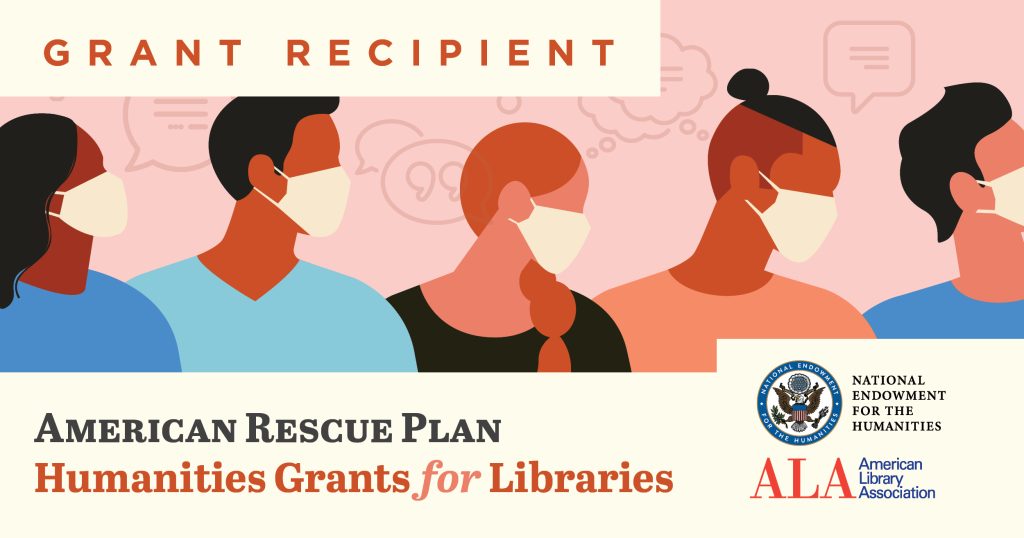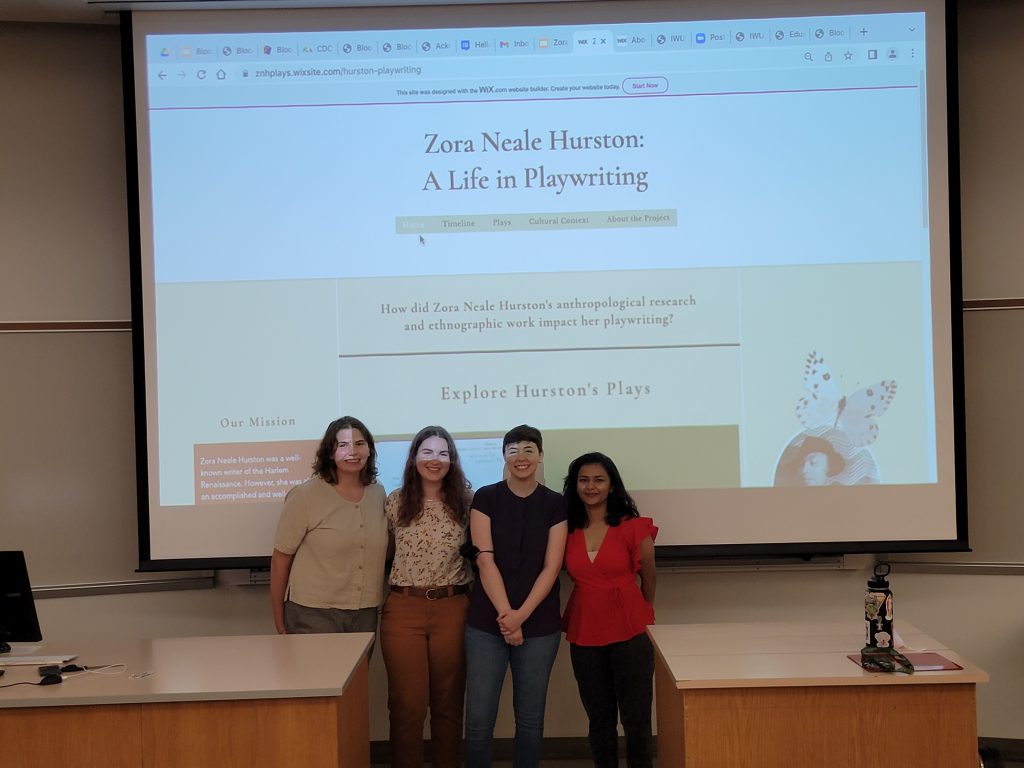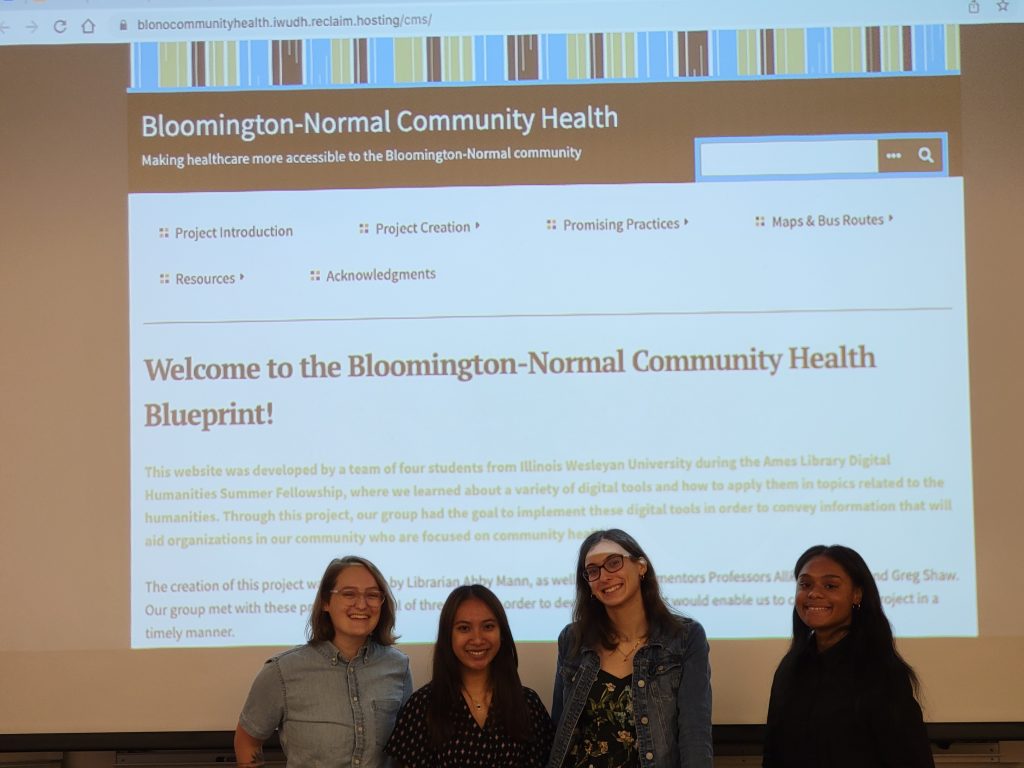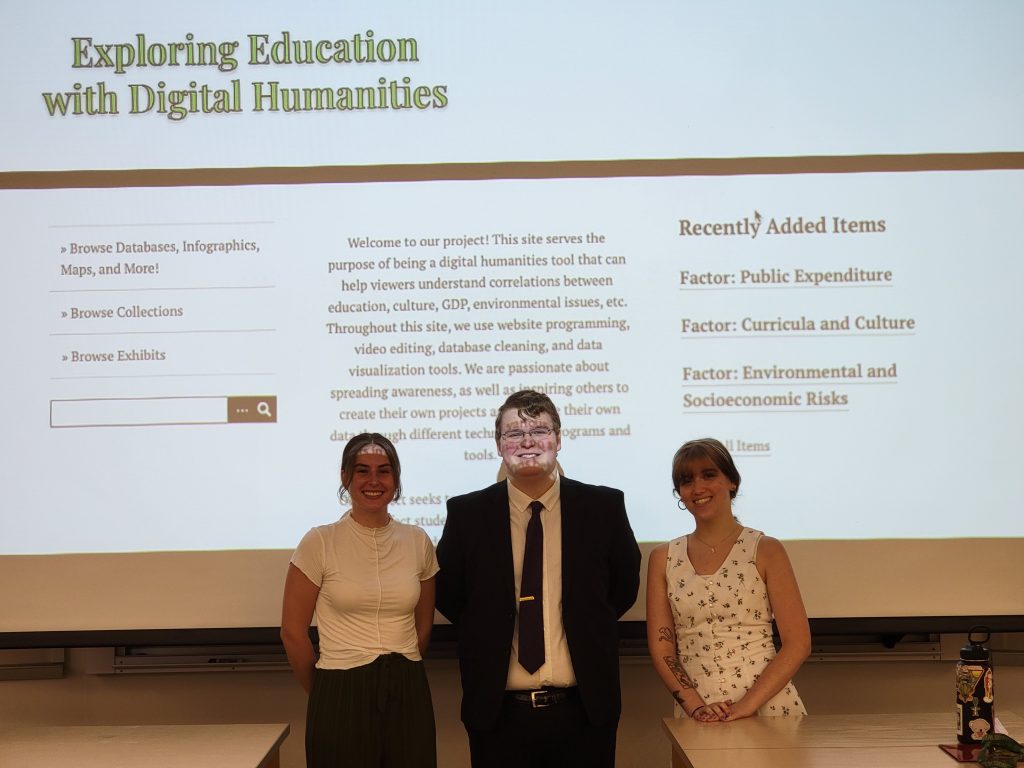The front doors may have been closed this summer, but that didn’t stop students in the inaugural Digital Humanities Fellows program. Over the past several weeks, twelve students with diverse backgrounds came together to learn about the digital humanities and apply a suite of new skills and tools to research projects with the guidance of faculty mentors.
The fellows developed their own research questions around data sets provided by faculty mentors, analyzed data relevant to those questions, and created digital stories to accompany their work.
Faculty mentors Michelle Gibbs (School of Theatre Arts) and Joshua Lowe (School of Art) led a team working on Zora Neale Hurston’s intellectual circles and networks. Mishwa Bhavsar (Computer Science), Leah Rosen (Greek & Roman Studies; Creating Writing minor), Julia McMahon (Political Science and English Literature), and Ellie Kurtz (History and Sociology) explored the question “how did Zora Neale Hurston’s anthropological and ethnographic research impact her play writing?” They sought to connect Hurston’s research to her plays and present it in ways inviting to all, from high schoolers encountering her work for the first time to dramaturges producing one of her works. Explore their website here.
Greg Shaw (Political Science) and Allison Serraes (English) led a team looking at health policy in Bloomington-Normal. Leah Matlin (Psychology and English – Writing), Alex Dawson (Psychology; Anthropology minor), Amanda Balaba (Accounting; Political Science and Data Science minors), and Amber Anderson (Political Science) had the broad goal of implementing digital tools to convey information that will aid organizations focused on community health in the Bloomington-Normal area. They used textual analysis to generate keywords to identify possible health initiatives for the community based on needs expressed by the community itself. Read more about their project here.
Leah Nillas (Education) led a team looking at international educational attainment measures. Kacie Moore (Sociology; Hispanic Studies minor), Zoe Hodve (Political Science; Hispanic Studies minor), and Josh Reed (Computer Science and History; Greek & Roman Studies minor) challenged their own assumptions about the relationship between international educational outcomes and national spending on education. They sorted through multiple factors and data sets seeking correlations between socio-cultural-environmental factors and educational attainment scores. See their results and infographics here.
Reflecting on the Digital Humanities Fellowship, Kacie Moore noted that she felt a lot of academic scholarship is gatekept and that digital humanities are a great tool for making that information more available to broader audiences. In speaking about the digital humanities, Online Learning Librarian Abby Mann – who led the program – said, “It’s a great way for our students to think about how they can bring the strengths of their liberal arts education to their future careers with an emphasis on effective and ethical communication in all sorts of professional settings, from academia to business to public service.” Explore other IWU digital humanities and digital scholarship projects here.
The Ames Library was very fortunate to receive seed money for this program through the American Rescue Plan: Humanities Grants for Libraries, an initiative of the American Library Association (ALA) made possible with funding from the National Endowment for the Humanities (NEH) through the American Rescue Plan Act of 2021. The Provost’s Office, The Ames Library, The Cargill Foundation, and the Faculty Development Committee provided additional funding for the inaugural program.




